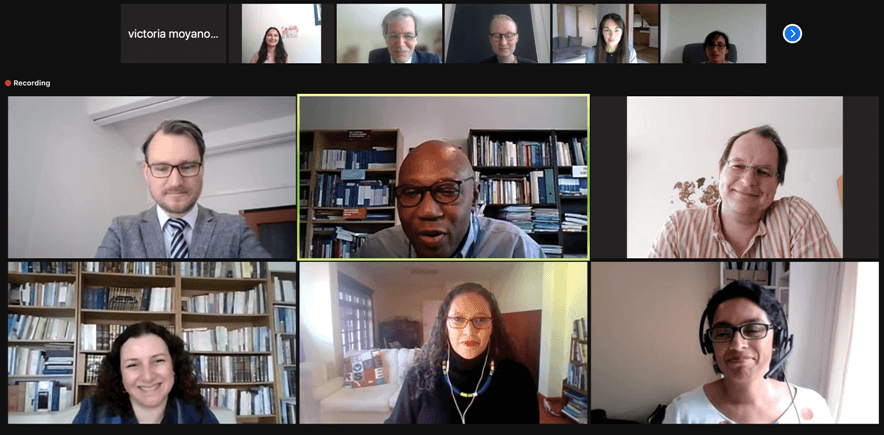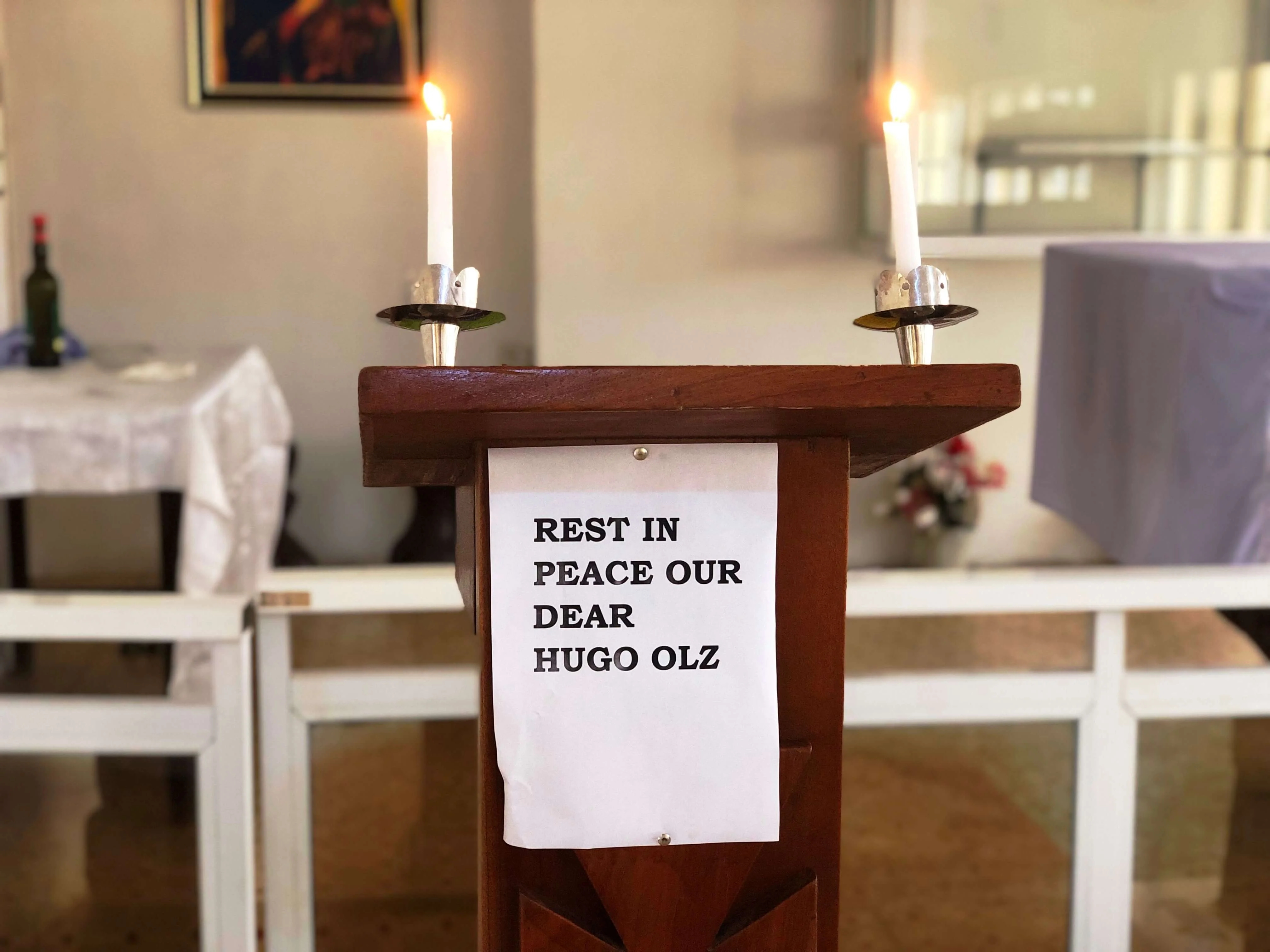
11th June 2021
Globethics.net Executive Director Obiora Ike took part in the closing panel discussion in an international conference on ‘Religious Communities and Sustainable Development: Towards a post 2030 Development Agenda – A Transdisciplinary Perspective' hosted by Humboldt University Berlin, Germany from 8-11 June 2021.
Dr Ike started the panel discussion on the topic ‘Towards a post- 2030 Agenda' moderated by Philipp Öhlmann of Humboldt University by addressing the question, "Why do we need to talk about religion and development? How do you see the relationship of religion and the Agenda 2030?" He stressed the importance of religion, in life and in development commenting that, "The only problem is the limitation of development to quantitative concerns. Development needs to be integrative to progress humanity". He continued to say that in the discussion about development it is necessary to address issues of justice, equity, transparency, human dignity and rights as well as the common good.
Dr Ike stated that development is largely initiated and dominated by Euro-centric views. There are voices that are not heard. He concluded his first intervention by saying that, "Religion and development do not go alone but with ethics, the dimension of doing good versus doing wrong". He applauded the initiatives to establish centres for religion and development in different countries and encouraged a coalition of such centres on religion and development.
In response to observations made during the panel exchange, he pointed out that the United Nations Sustainable Development Goals (SDGs) can be seen to be rooted in and to echo key religious beliefs and practices, for example in Matthew chapter 25:35-36, "I was hungry and you gave me to eat…".
Dr Ike referred to the idea that we can talk about a time post-COVID-19. "We can't", he said, "it is here to stay. In Nigeria 210 million people and 1 million people have been vaccinated. At the same time in Europe countries are approaching a vaccination rate of 70% of the population. We must look at the world globally. We can't assume that the situation is the same everywhere".
He remarked that the faith content in development is also an ethical question, in the practice, in dealing with hunger, managing human beings, providing quality education and engaging in the education of the teacher. You can't teach without being taught.
Taking a question about the role of local governments, Dr Ike asked that they think globally and act locally in ways that are practical. For example, the Catholic Church in Ghana has announced the planting of one million trees to celebrate the fifth anniversary of Pope Francis' encyclical Laudato Si' on care for our common home. At the same time the government of the same country of Ghana has launched the initiative to plant five million trees in one day.
Governments are given power to act by and on behalf of their citizens. Sometimes it is necessary to claim that power to build, for example, the Africa that we want from a long-term perspective with the Agenda 2063 of the African Union in mind.
The world is united in its search for peace. Each human being matters, and no one should be left behind. Noting that the SDGs were preceded by the Millennium Development Goals, Dr Ike advocated for the post-2030 Agenda that goals be framed as Sustainable Integral Development Goals to include the human quality, bringing in ethics and religion as well as economic and social indicators.
Alongside Dr Ike on the panel were Nadine Bowers Du Toit from Stellenbosch University in South Africa looking at the extent to which the SDGs are a relevant frame of reference for local religious actors' work in the development sphere.
Panellist Lata Narayanaswamy, Professor at the School of Politics and International Studies at the University of Leeds in the UK, appreciated the added value of having the SDGs and the 2030 Agenda as a global framework for development while also talking of the shortfalls.
The German agency for international cooperation, GIZ, was represented on the panel by Timo Biank who drew out lessons learned during the last six years since the SDGs were introduced. In his view great strides had been made though there is still a long way to go in terms of developing religious literacy among the development community.
Finally Nayla Tabbara, Director of the Adyan Institute and Vice Chair of the Adyan Foundation presented their approach of religious social responsibility in relation to sustainable development and the implications of the SDGs for religious communities.
In the exchange with participants panellists highlighted living moral and sustainable lives, the need to recognise and deal with the past and to think not only about outcomes but to focus on process and thereby integrating relationality.




